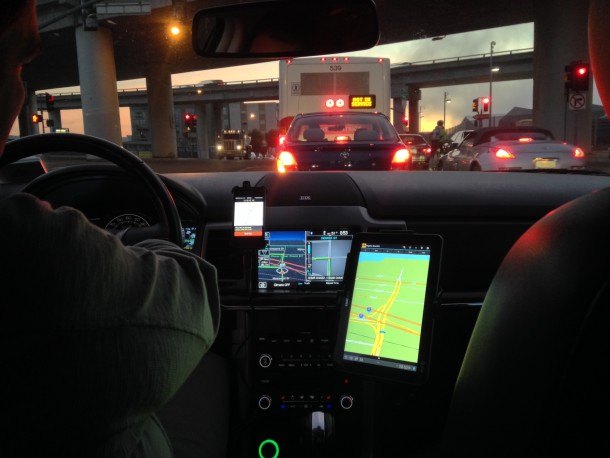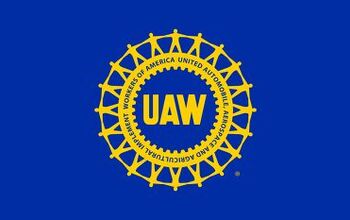From Contractor to Employee: California Ruling Poised to 'Decimate' Uber, Lyft

An April ruling from the California Supreme Court determined that most contract workers, including those partnered with ride-hailing companies like Uber and Lyft, could actually qualify as employees under the state’s wage laws.
While that’s great in an era when wages can’t seem to match the constantly ascending cost of living and companies are cutting corners to maximize profits, it’s not so great for outfits that depend on contract workers to exist — like the aforementioned ride-hailing firms.
Uber and Lyft managed to balloon their revenues far beyond the billion-dollar mark, but neither company is currently profitable. Despite taking a cut of every single fare, expenses still result in a net loss for the companies during most rides. Assuming California forces them to tack on employee benefits and all the associated trimmings, both businesses could be in for a world of hurt.
Obviously, neither outfit is particularly thrilled with the idea, so they’re lobbying California Democrats to upend the court ruling. According to Bloomberg, nine businesses dependent upon the “gig economy” drafted a joint letter on July 23rd to attempt to sway California Governor Jerry Brown’s cabinet, presumed successor Gavin Newsom, and members of the state legislature.
“The magnitude of this issue requires urgent leadership,” reads the letter, suggesting the move risks “stifling innovation and threatening the livelihoods of millions of working Californians.” Co-signed by Uber Technologies, Lyft, Instacart, DoorDash, Postmates, TaskRabbit, Square, Total System Services, and Handy Technologies, the note warns that, without political intervention, the court decision will ultimately “decimate businesses.”
“If you have a business model that doesn’t lend itself to the strict structure that an employer-employee relationship dictates,” said California Chamber of Commerce president and CEO Allan Zaremberg, “[The ruling] puts you in a situation that it’s almost impossible to continue your business model … People depend very much now on an on-demand economy. In the worst-case scenario, it isn’t a viable business model anymore.”
How dire of a situation it would be for these businesses depends on on their individual business model. Still, some will have it worse than others. Uber and Lyft could simply elevate pricing to cope with new expenses. However, higher fares could result in customers leaving the platform or using it less frequently. While we don’t know the complete financial burden associated with the employment status change, California state laws entitle employees to a guaranteed minimum wage, overtime pay, protection from sexual harassment, payroll tax contributions from employers, and the chance to win collective bargaining. It sounds expensive. Considering the lobbying effort being made, it likely is.
However, labor advocates are fine with the court’s decision, claiming it as a victory for workers’ rights.
“These companies continue to have choices about their business model,” union leaders from California’s building trades, Teamsters union affiliates, and AFL-CIO chapter told Governor Brown and legislative leaders in their own letter. “They can convert workers to employees and retain control over their work rules and their rates. Or they can contract with true independent contractors. The only thing they can’t do after [the April ruling] is have their cake and eat it too.”
[Image: Jason Tester Guerrilla Futures/ Flickr ( CC BY-ND 2.0)]

A staunch consumer advocate tracking industry trends and regulation. Before joining TTAC, Matt spent a decade working for marketing and research firms based in NYC. Clients included several of the world’s largest automakers, global tire brands, and aftermarket part suppliers. Dissatisfied with the corporate world and resentful of having to wear suits everyday, he pivoted to writing about cars. Since then, that man has become an ardent supporter of the right-to-repair movement, been interviewed on the auto industry by national radio broadcasts, driven more rental cars than anyone ever should, participated in amateur rallying events, and received the requisite minimum training as sanctioned by the SCCA. Handy with a wrench, Matt grew up surrounded by Detroit auto workers and managed to get a pizza delivery job before he was legally eligible. He later found himself driving box trucks through Manhattan, guaranteeing future sympathy for actual truckers. He continues to conduct research pertaining to the automotive sector as an independent contractor and has since moved back to his native Michigan, closer to where the cars are born. A contrarian, Matt claims to prefer understeer — stating that front and all-wheel drive vehicles cater best to his driving style.
More by Matt Posky
Latest Car Reviews
Read moreLatest Product Reviews
Read moreRecent Comments
- Lorenzo I just noticed the 1954 Ford Customline V8 has the same exterior dimensions, but better legroom, shoulder room, hip room, a V8 engine, and a trunk lid. It sold, with Fordomatic, for $21,500, inflation adjusted.
- Lorenzo They won't be sold just in Beverly Hills - there's a Nieman-Marcus in nearly every big city. When they're finally junked, the transfer case will be first to be salvaged, since it'll be unused.
- Ltcmgm78 Just what we need to do: add more EVs that require a charging station! We own a Volt. We charge at home. We bought the Volt off-lease. We're retired and can do all our daily errands without burning any gasoline. For us this works, but we no longer have a work commute.
- Michael S6 Given the choice between the Hornet R/T and the Alfa, I'd pick an Uber.
- Michael S6 Nissan seems to be doing well at the low end of the market with their small cars and cuv. Competitiveness evaporates as you move up to larger size cars and suvs.


































Comments
Join the conversation
...We need a program like that for elderly drivers who no longer have the ability to drive safely... While your response is tongue-and cheek, this is a serious problem. As one with a 90 year old father that steadfastly refuses to give up his keys, this is a real problem. We got him full time day care to skirt around the issue. Sorry about the thread hijack.
Good. Those are all trash jobs, anyway. A guy got into an accident outside my place in San Jose a couple of years ago. Ran his beater Corolla into a Suburban in the middle of an intersection. He worked for some startup that delivered "warm, fresh baked cookies" to slobs to lazy to cut up a dough log and turn their oven on or grab a few chocolate chippers and toss them in the microwave. Had an illuminated sign on the roof -- it wound up 300 feet down the street. Grabbed my medical kit and ran out. The woman in the Suburban was fine. The poor guy in the Toyota was a mess. I will never forget holding the split across his face closed to slow the bleeding down. All because of some trash job. He shouldn't have been out there in the first place.